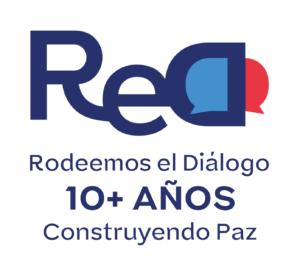Fourth Conversatorio on the Colombian Peace Talks
London, 30 November 2013
“Political participation: Small step or giant leap?”
When the 16th round of negotiations began there was a general view that the talks were stagnating. Now that this round finished with an agreement on the second point of the agenda there is a renewed optimism about the negotiations. In the conversatorio, held on 22 September at Canning House with the participation of four Colombians, eight British citizens, guest speaker Henry Robinson (founder member of Against Violent Extremism network) and facilitated by Andrei Gómez-Suárez (researcher at Oxford and Sussex), we discussed how relevant and important this new agreement is for the future of the talks in particular in relation with illegal drug trafficking, next point in the agenda.
Political Participation
The full details of the agreement have not yet been made public. However, based on the experience of other peace negotiations, it would be safe to say that the current state of the negotiations in the Havana is very positive. The suggestion of a comprehensive security system for the exercise of politics is very important to protect the FARC from attacks by paramilitaries after demobilisation.
How significant is the agreement on political participation?
The recent agreement is so significant that optimists argue that there is no turning back on the road to peace. The FARC have decided to give up the armed struggle and come to an agreement with the government on how to use politics to fight for their goals. The agreement is also central in the run-up to the National Congress elections in March and the Presidential elections in May 2014. Álvaro Uribe, the most vocal critic of the negotiations, is now trapped in his anti-negotiation stance while public opinion has swung in the negotiators’ favour and the popularity of Santos has risen.
Colombian Defence Minister’s role
Minister Pinzón often expresses positions which are contrary to those expressed by Santos and this seems to undermine the unity of the national government, but these statements do represent the views of a large right-wing sector of the state. Therefore it seems like Pinzón is playing the useful role of ‘bad cop’ in counter position to the role of Santos as ‘good cop’ during the negotiations.
The Peace Process and the war on drugs
The next point on the peace agenda is a solution to the problem of illegal drugs. It was suggested that President Santos’s two main goals are to end the armed conflict with the FARC and to fundamentally change the war on drugs. The war on drugs is a global affair and recent signs of change include the legalisation of marijuana in Uruguay and the US states of Colorado and Washington, and the report by the Organisation of American States suggesting alternatives to the failed war. Santos is one of the two current Presidents to advocate for change in the war on drugs and Colombia remains a huge producer of cocaine as well as an important hub for the transport of many illegal substances. Therefore the decisions on how to handle the drug routes and coca plantations controlled by the FARC could be a very significant part of the changing global context. However, it is worth remembering that some units and members of the security forces, paramilitary groups, and criminal gangs are heavily involved in production and/or trafficking so this is a problem which permeates both parties participating in the negotiations.
The role of Simón Trinidad and the USA
Some people view Simon Trinidad as a future political leader of the FARC and as an important figure to negotiate the problem of illegal drugs. The FARC have consistently demanded that he be released from the US prison where he is held. If this were the case, would FARC respond with a definitive unilateral cease fire? What effect would this have on Colombian public opinion? However, the US is the main proponent of the war on drugs and it is not clear whether is unwilling to change its stance. In the next couple of weeks Santos will meet Obama. Will he be able to secure convincing support from the US while the issue of drugs is being negotiated? Will he discuss the issue of Simón Trinidad and an alternative to the war on drugs?
Peace versus Justice
Peace is not just a piece of paper. It’s about reintegrating former armed actors who have committed crimes into communities to ensure that the cycle of violence does not reignite. Without justice and reconciliation, there will be no lasting peace. But what kind of justice is appropriate? It is unlikely that the FARC are prepared to give up the armed struggle to go to prison. Moreover, the criminal justice system focuses on whether a crime has been committed and this is often unsatisfactory for victims because they have specific questions about what actually happened. Therefore maybe truth commissions could be a substitute for formal justice. But are victims prepared to accept alternative forms of punishment for the people who have killed their loved ones?
Overall, participants considered that although the agreement on political participation is a milestone in the peace processes, serious challenges remain: first, to solve a puzzle that balances truth, justice, and peace and second to articulate a Colombian solution to criminality by tacking into an alternative approach to the war on drugs.
CONVENORS
British Academics for a Colombia Under Peace (BACUP)
Canning House
Plataforma
Rodeemos el Dialogo (ReD)
